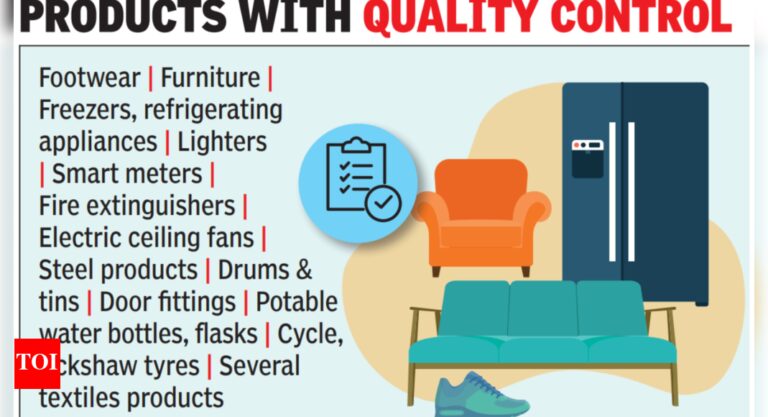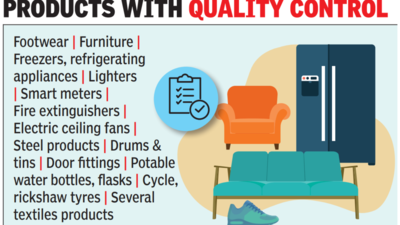NEW DELHI: About a year ago, the plywood and MDF board industry had approached the government vehemently opposing the move to impose quality control orders (QCOs) that would provide specifications that domestic and industry players would have to follow.
Late last month, when an industry delegation met Commerce and Industry Minister Piyush Goyal, he was keen for the government to introduce the policy by February. The move is seen as benefiting Indian consumers who have long wondered whether the quality of plywood and MDF boards they purchase to install cupboards and kitchen cabinets is up to par.
“Implementation has been delayed by a year at the request of the industry, but we recognize that our narrow thinking is having a negative impact on our industry,” said one of the largest companies in a sector dominated by small businesses. said NK Agarwal of Action TESA. “This will increase capacity utilization from the current 50-60% level,” he added. Last year, most of the industry, estimated to have at least 5,000 players, was not ready, but now most players have completed registration with the Bureau of Indian Standards, said Bihar’s Suryodaya Industries. Rajesh Agarwal said.
“Further delays could have serious consequences, including decline in domestic business, loss of jobs and reduced demand for local raw materials,” said Ajay Garg, managing director of E3 Group.
From plywood to door hinges, footwear to furniture, ceiling fans, tires, copper and steel products, there are more than 200 items on which government agencies have decided to impose QCOs. QCO is nothing but a standard to ensure that products are of international quality. It is produced not only domestically but also overseas.
In some cases, such as plywood, the domestic industry itself has protested the move and also pointed to gaps in standards, resulting in delays in implementation. Despite protests from Indian retailers on footwear, domestic producers support the policy to improve quality and limit the entry of inferior goods from China into the market.
It is usually the importers who complain when their business is affected or forced to readjust their supply chains. Moreover, it stimulated investment. For example, an investment of Rs 5,000-6,000 crore has been made in door hinges. Similarly, the QCO for cold-rolled grain-oriented electrical steel (CRGO) is believed to have prompted the announcement of a domestic joint venture between JSW and JFE Steel.
The government refuses to succumb to pressure, insisting that Indian consumers should also be afforded quality products and that standards are defined across countries and are not specific to India. .



